

Welcome to Relocating to Ireland, a website providing information and advice about moving to Ireland as well as showcasing everything that Ireland has to offer.
Hi! My name is Colleen, and I’m really happy that you’re visiting my website Relocating to Ireland.
I’m originally a Kiwi, but after finishing University, my husband and I moved to Australia. After 10 years of enjoying the sunshine and lifestyle of Australia, we decided that we really wanted to move abroad for an extended period of time and experience an expat life.
Being avid travellers, we fantasized at the thought of being closer to Europe so that our usual annual 30 hour trek to holiday in Europe could become part of our regular weekend getaway. The novelty of being able to cheaply fly to a new country within a few hours still hasn’t worn off!
My husband was offered a job as a Scientist in Dublin. Although neither of us had been to Dublin, let alone Ireland, ever the adventurous souls, we decided to go for it. Within 4 months we had rented our beloved first home and, except for five lonely boxes of our most favourite items, gotten rid of all our furniture and most of our personal belongings.
Initially, it felt like our usual fun annual holiday. But setting up home in Ireland was difficult because we knew nothing, and I mean nothing… not even what supermarkets to shop at, which shops to obtain quality but reasonably priced household essentials from, or even how to operate the confusing water heating system (I have explained this in detail for those of you similarly confused). Then there were the simple tasks that just seemed impossible, like where the heck can we purchase some microwavable plastic lunch containers? (More difficult than you may think).
Initially due to my husband’s working arrangement and the incredibly frustrating and confusing Irish immigration system, I was not able to work. However, I seized this opportunity to try my hand at something new and decided to create a website providing practical information and advice for those of you undertaking the same journey and relocating to Ireland.

Take a moment to connect with me on Twitter and Pinterest.
Or contact me directly by filling out my contact form.
Go raibh maith agat!
~ Colleen

I would love to hear feedback from you. Some weeks get a little busier than others (I am a one man show), but I’ll do my best to reply to you within a few business days. Thanks so much for touching base!
If you would like to work with me, I would love to hear from you. You can send a message via the contact form below.
Once you have found a suitable place to live in, next you need to get your utilities set up. This guide provides an overview into each of the utilities, what’s available, how they operate and how to get them set up.

Some properties may have access to gas, but electricity is typically the main source of energy. Both are quite expensive.
Standard voltage in Ireland is 230V AC. Electricity is charged by the unit used and there are two different rates – daytime and night time. The day time rate is much more expensive than the night time rate. Consequently, if you are relying on electricity for heating, night store heaters can be more efficient. If you are new to night store heaters, learn how to efficiently operate your night store heaters.
The electricity services are distributed and maintained by the state owned Electrical Supply Board (EBS), however, they are not an electricity supplier. In order to connect your electricity services, you will need to contact one of the electricity suppliers listed below and become a new customer. Along with your personal details, meter reading, and bank details (if paying by direct debit) you will need to supply them with your EBS supplied Meter Point Reference Number (MPRN). The MPRN is an 11 digit number that identifies your properties unique connection. Your landlord should be able to supply you with this number.
Water charges were introduced in 2014, to much opposition. Households began being billed for water in 2015. There is only one supplier, Irish Water.
The tap water is safe to drink and is monitored by the local authorities to ensure a safe, quality supply.
Similar to other utility services, Tenants are expected to sign up for an account. The Irish Water website has been set up to clearly explain the charges and how it works.
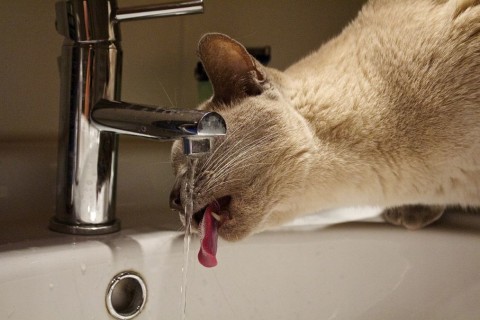
Rubbish collection (garbage/refuse) arrangements can vary area to area. Usually it is a private contractor to whom you will need to pay per rubbish bag or wheelie bin. Rubbish collection is usually done once a week. Rubbish and recycling is separated and your provider will tell you what goes in each bin. Glass has to be recycled separately (don’t forget to remove the lid, as it’s not glass).
To reduce your expenses, separate the recycling from the rubbish and take it to the public recycling bins in your local area. Find your nearest recycling centre. In general there is no charge at these civic amenities centres but it can be very inconvenient to have to store your recyclables and then take them to these bins, especially if you don’t own a car. There are also landfill sites, but they charge fees.
If you are living in an apartment complex, then the waste is usually included in your rent and they will provide large waste skips for you to use.
Batteries and ink cartridges can be disposed in designated recycling locations, often in stationary stores and supermarkets.
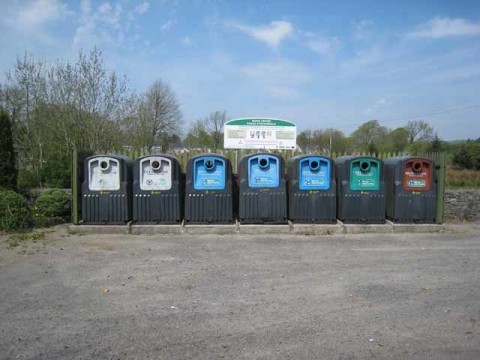
There are a number of types of internet services available in Ireland:
ADSL: Also known as broadband, this internet service is brought to you via the landline phone lines. Hence you will need to pay line rental. Ireland is rolling out its Fibre Broadband network which will deliver greater internet speed.
Cable: Cable uses the same technology as ADSL but delivers it via cable TV. The advantages in choosing cable is that you won’t have to pay line rental and, unlike ADSL, you won’t suffer any slowdown in speeds during peak usage times because the line is not shared with anyone else.
Fixed Wireless Broadband: Fixed wireless broadband is an alternative to customers in rural areas where ADSL or cable is not available. A small transmitter in your local area broadcasts wireless signals that are picked up by a small antenna on your house, which channels the signal to a router or connection point inside the house.
Satellite broadband: Satellite is an option for those living in remote parts of Ireland with no cable, ADSL, fixed wireless or even mobile broadband service. The quality of the connection is more likely to be affected by adverse weather conditions and it is expensive to install.
Mobile Broadband: Mobile broadband allows you to access the internet via the 3G or 4G networks operated by mobile operators through either a USB dongle or modem plugged into your PC, laptop or mobile device, or using a WiFi Hotspot Device.
These companies offer bundled packages which include subscription pay TV, broadband internet and landline phone services. If you want to access all three of these services, then bundles can offer the best value for money and the ease of only having one monthly bill. However, be wary of price specials that offer a great introductory rate but then increase after a short period of time. Some of these deals are good value, but others could actually cost you more in the long run.
Combined broadband and phone bundles are available for those of you who don’t want to pay for subscription TV, For broadband services you need to have a landline phone connection, so the deals usually include competitive call rates. If your phone line is not connected, your new provider can arrange to get this done. Be wary of price specials that offer a great introductory rate but then increase after a short period of time. Some of these deals are good value but others could actually cost your more in the long run. You should also consider and compare the internet speeds. Fibre optic is available in many areas. Your supplier of choice will be able to advise you if you can access it.
For those living in remote areas, there are also satellite broadband suppliers.
If you only want subscription TV services, UPC and Sky offer a stand alone subscription TV service. Netflix is also available in Ireland.
You can access mobile broadband services via a stick/dongle device or using a WiFi Hotspot Device.
Stick/Dongle: There are a number of companies that can provide you a stick/dongle style internet connection for your computer. Alternately, you could also get a mobile phone plan that includes data and connect your phone to your computer to access the internet. The data plans for dongles and mobile phones can be quite limited, but shop around as there are some good deals to be had.
WiFi Hotspot Device: 3G or 4G WiFi hotspot devices are great because you can use them either plugged into your device or via Wifi. They can also provide a Wifi connection to more than one device at a time. There are lots of great deals, some even offering large data packages for the same price as a broadband service. Better yet, there is no waiting for it to be connected and you don’t even need a phone connection. These devices are a good option for those living in flats or shared houses and need their own private internet connection. The provider that you purchase it from should be able to tell you whether or not your area has good coverage. They should also provide a guarantee that you can return the device within a set amount of days if it does not work.

It can be tricky to get on a mobile phone plan if you are new to Ireland, as they usually like you to have been living there in the previous 6 months. However, this can depend on how ‘flexible’ the person signing you up is. You may also be able to get around this by paying a refundable (usually after six months of service). If this is a problem, then you can just get a prepaid service. In some cases this may actually be the same price as a plan or even cheaper.
I found the whole TV system in Ireland quite confusing. The free Irish TV is quite limited and has only a handful of channels. The other option is paid TV, but if you are on a small budget, this can be expensive. However, you can access more free channels by gaining access to the UK’s free TV. I have outlined below how you can get access to both the free Irish TV, as well as the free UK TV channels.

Raidió Teilifís Éireann (RTÉ) is the National Public Broadcaster for Ireland. They produce programmes and broadcast them on television, radio and the Internet. RTÉ channels also show mainstream TV shows from around the world and their website provides an RTÉ Player service which enables you to catch up on shows that you have missed.
Ireland no longer broadcasts analogue TV as it has been replaced with a digital signal. The free digital service that provides this RTÉ broadcast is called Saorview, which it is owned and managed by RTÉ. If you have an HD TV, you can simply receive the digital Saorview broadcast by connecting it to a TV aerial or rabbit ears. If you have an old TV that is not capable of digital TV, then you will need to purchase a Soarview Set Top Box.
With the right equipment you can also access the UK’s free digital television service.
You may hear these terms bandied around, but most people don’t understand the difference. These services all play the same free UK channels; however they use a different type of receiver.
Free-to-Air: Is the free UK TV channels that can be received using an ITV/BBC patented satellite receiver and a satellite dish. (See option 1 and 2 below).
Freesat: Is the free UK TV channels that can be received using a generic satellite receiver and a satellite dish. (See option 3 and 4 below).
Freeview: This broadcast can be accessed via a TV aerial, but only in a few Irish coastal locations (and only if you have the aerial in the right spot).
I am not a TV professional. If you are going to try setting it up on your own then I definitely recommend that you discuss your needs with a professional. You want to ensure that you buy the right equipment as there are pros and cons that need to be considered before deciding on whether to go with the Free to Air or the Freesat box.
In Ireland, any home with a TV is expected to pay an annual TV licence. The bulk of this fee goes towards funding the free Irish TV RTÉ and is managed by An Post (the Irish Postal Service). However, even if you don’t watch RTÉ, you are still are still required to pay this licence for owning a TV have television or equipment capable of receiving a television signal. Be aware that failure to pay your TV licence can lead to a fine and a court conviction.
Learn more about the TV licence.
The Irish have a good publicly funded healthcare system in place. This Guide will provide you detailed information about the various Irish Healthcare services that are available and how they operate.

There are two tiers of health services in Ireland:
The Irish Public Healthcare system is governed by the Health Service Executive (HSE). It provides health and social services to EU/EEA or Swiss nationals and residents of Ireland. In order to receive publicly funded health services, you do not need to be paying Irish tax or social insurance, but you must be able to satisfy the HSE that you are “ordinarily resident”.
To establish whether you are ordinarily resident, you must show that you intend to remain in Ireland for a minimum of one year. As well as this, the HSE may request evidence, e.g.
If you do not come under one of these categories, then you can still receive healthcare but you will be charged the full cost of the service.
Unfortunately there are long waitlists in place for medical treatments, and, as a result, many people choose to take out private health insurance in order to receive medical treatments more promptly. In some cases where specialised treatment cannot be sourced for patients within Ireland, the HSE pays for the patient to be treated abroad (e.g. the UK). Alternately, some people turn to medical tourism in order to receive prompt and cheap treatment.
If you are eligible to receive the HSE service, then you are entitled to either full eligibility (Category 1: Medical Card holders) or limited eligibility (Category 2: Non medical card holders).
If you are an Irish resident and low income earner, then you may be entitled to a medical card. Medical card holders receive a range of health services free of charge such as:
Find out how to apply for the medical card and what health services are covered.
If you are eligible for a medical card, then your dependant spouse or partner and children are also usually covered.
If you do not qualify for a medical card due to your income, you may still qualify for a GP visit card.
You are entitled to receive public hospital services, but you may have to pay inpatient and outpatient hospital charges. You will also receive subsidised prescription drugs, free maternity care, free or subsidised community care and personal social services. Unless you hold a GP visit card you will need to pay for your GP visits.
In Ireland, a general practitioner, or GP, is a doctor who works from a private surgery and/or patients home rather than a hospital.
Those that have a medical card need to register with a GP who have signed up to see patients under this scheme. If you do not qualify for a medical card due to your income, you may still qualify for a GP card.
Patients with a GP Visit Card
A GP visit card allows you to visit participating GP’s for free. However, you will still need to pay for prescriptions and hospital charges.
Learn more about the GP visit card and how to apply at Citizens Information.
From 2015, all children under six years of age and people over 70 years of age are entitled to free GP visits.
If you are not eligible for any of the above entitlements, you are considered a private patient and can register with any GP that offers services to private patients. A GP visit can set you back €40 to €70. You should confirm the charges with your GP when you register as they can vary all over the country. If you have health insurance it may cover GP visits or even subsidise them, so check your level of cover with your health insurer.
To get access to a specialist, you need to be referred by your GP. They will refer you to the local specialist either in the nearest city or regional hospital. Unless you pay the full private fees or have health insurance then it can take some time sitting on the public health system waitlist before you get to see a specialist.
If you live in a regional area and require specialty care, you may need to travel to a city hospital to receive the specialised treatment you need.
The Irish Public Healthcare system provides ambulance services to transport the seriously ill to hospitals. Unless you have a medical card, you may be charged for this service, depending on your circumstances.
Ireland’s public and private hospitals have Accident and Emergency (A&E) departments for serious emergencies. Be aware that if you attend a private hospital, you will be charged accordingly.
At Irish public hospitals, visiting EU/EEA and Swiss nationals receive emergency care free of charge. However, if you do not come under one of these categories then you will need to pay for the cost of your treatment. If you are an Irish resident then unless you hold a medical card, there may be some costs for your visit. However, the costs are very reasonable, especially when compared with countries like the USA. Alternately, you could consider getting health insurance.
When you arrive at the A&E you will be prioritised on the basis of medical need. Therefore, non-urgent cases may be required to wait for treatment, so you may be better off going to see your GP rather than sitting in an A&E waiting room for hours.
Those who are eligible for the Long Term Illness Scheme can receive free drugs and medicines for their condition, regardless of whether or not they hold a medical card.
From 2015, all children under six years of age are entitled to free GP visits.
Children also receive free vaccinations including Tuberculosis, Diphtheria, Tetanus, Whooping cough (Pertussis), HiB (Haemophilus influenzae B), Polio, Meningitis C, Measles, Mumps and Rubella. Girls also receive the HPV vaccination at 12 years of age.
Ireland provides a free smear test programme called CervicalCheck. This programme is available to residents of Ireland and provides free smear tests to women aged 25 to 60.
For more information go to CervicalCheck website.
Ireland provides a free breast cancer screening programme to residents of Ireland aged 50 to 64. The programme is called BreastCheck and it provides screening a free mammogram on an area-by-area basis every two years.
For more information go to BreastCheck website.
Abortion is a controversial topic in the Republic of Ireland and it is currently illegal unless there is a real and substantial risk to the life mother’s life.
Women seeking to undergo an abortion typically travel to Britain where it is legal. Northern Ireland is not included in the UK’s Abortion Act of 1967. Although not illegal, abortion is generally only permitted where there is a serious threat to the health of the woman.
All women who are eligible to receive Irish public health services receive free maternity care through the Maternity and Infant Health care Scheme, regardless of whether they hold a medical card (add link). Only treatment relating to the pregnancy is covered by the scheme.
Women in employment are also entitled to maternity leave. Find out more about workplace maternity rights.
Women can give birth either in a hospital or at home and have access to pain relief options such as Epidurals. Breast feeding is encouraged and consequently there is support to assist new mothers with this. Ireland also provides new mothers with free public health nurse home visits and support from the Community Mothers Programme through local GPs.
It is a legal requirement that you officially register the birth within three months. The Register of Births form is usually given to parents in the hospital and it needs to be completed by one of the parents and signed and submitted at the Office of the Registrar. There is no fee for registering a birth.
If the parents of the child are Irish citizens, then the child automatically qualifies as an Irish citizen. However, a baby born to foreign nationals or British or Northern Irish parents does not automatically qualify for Irish citizenship.

All contraceptive devices are available in Ireland, including:
Condoms are readily available from supermarkets, convenience stores and pharmacies. Condoms can be quite pricey in Ireland. Many college student services give them out for free or cheap.
Also called the morning after pill, there are several types of emergency contraceptive pills available in Ireland.
Pharmacists cannot dispense the contraceptive pill without a prescription from a registered Irish GP. GP’s can only prescribe six months worth of contraceptive pill at a time.
Also, the brand name on the label of your pill may not be familiar to Irish GP’s, so it helps to bring along the packaging that states the actual chemical ingredients and your prescribed dosage. Be aware that the type of pill that you take may not be available in Ireland, but your GP should be able to work with you to find an alternative that suits your needs.
A cheap way to get a contraceptive pill prescription without having to pay to see a GP is to obtain it online for around €20 – €25. However, this does not give you the opportunity for face to face discussion with a GP, so may not suit everyone.
On the website you will be given a range of contraceptive pills to choose from and then asked to complete an online consultation. Then, after paying the fee, they will send you a prescription for your contraceptive pill from a registered Irish GP. You then take this prescription to any pharmacy to have it filled.
Online pharmacies that provide contraceptive pill prescriptions:

In Ireland, you can get sexual health advice and support services and contraception from the following services:
Unless you have a medical card or a GP visit card, then visiting your GP for contraception can be expensive. A GP visit can set you back €40 to €70. Consequently, many of the long acting contraceptive options such as the IUD and implants are becoming more popular in Ireland.
These clinics are often cheaper than seeing a private practice GP and also typically have student and unemployed rates.
Find a family planning clinic in your area.
For a fee, you can get your contraceptive pill prescription online (see above), and even order a STI Test Kit to be sent to your home. However, online doctors do not give you the opportunity for face to face discussion about your personal medical circumstances.
Pharmacies are widely available in Irish towns and cities. Opening hours are usually 9am to 6pm or 8pm, Monday to Saturday. Some are open till late (10pm) during the week and on Sundays. There are no 24/7 pharmacies and if medication is required urgently, it’s best to go to the emergency department of the nearest hospital.
Pharmacists cannot dispense drugs without a prescription from a registered Irish doctor. Before moving to Ireland, get a list of your medications from your doctor. Remember, the brand name on the label of your medications may not be familiar to Irish GP’s and pharmacist, so it helps to bring along the packaging that states the actual chemical ingredients and your prescribed dosage.
Everyday drugs such as paracetamol and ibuprofen are very expensive to purchase in Ireland. Furthermore, due to the high numbers of recorded paracetamol overdose in Ireland it is against the law for shops to sell paracetamol in blister packs of more than 12 (500 mg) tablets in a single transaction, and in pharmacies they cannot sell more than a 24 pack. For doses higher than this, they can only sell half this amount. Drugs containing codeine can only be sold in pharmacies over the counter.
Because of the high cost of medications, many people purchase them online. However, be aware that it is illegal to import prescription drugs and drugs (including supplements) that are banned in Ireland. Consequently they can be seized by customs.

There is no Value Added Taxes charged on oral medications in Ireland.
Once you have your prescription, you can save money by shopping around to get the best price. Both the retail price of the medication as well as the pharmacy’s fee to dispense the medicines can vary greatly between pharmacies. To save time and energy, simply phone the pharmacy to check the total price that they charge to fill your prescription.
Buying in bulk is another great way to save money. If there is an option to dispense your prescription in bulk (for example, collecting a 6 month supply instead of collecting it twice as 3 months supply), then this is usually cheaper as you will only have to pay the dispensing fee once.
Without a medical card you will need to pay for your medications as well as the pharmacists dispensing fee. However, you under the Drugs Payment Scheme, the limit for an individual or family is €144 per month. Anyone who is an Irish resident and holds a PPSN can apply for this scheme.
To register for the Drugs Payment Scheme, go to your Local Health Office.
Ireland has strict restrictions on the sale of vitamins and supplements (including herbal). Many are either banned outright or banned from being sold over the counter and may only be obtained via a prescription. For more information, go to the Food Safety Authority of Ireland.
Each year thousands of Irish make their way abroad to seek discount medical procedures from essential surgeries to cosmetic surgery and dentistry. Hungary, Spain, Poland, Czech Republic, Belgium, Turkey, Spain and Thailand are just some of the many countries that Irish turn to, especially those tired of waiting on long waitlists for medical procedures in Ireland. The idea of combining a holiday with medical treatment can be particularly attractive, but you need to be careful and thoroughly do your research before deciding on where to go.
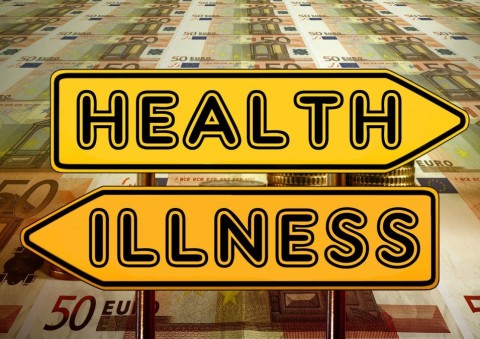
Although Ireland’s public health system offers treatment at a significantly reduced rate, the long waitlists turn many Irish to private health insurance. Tax relief is available for premiums paid for health insurance. Some employers may provide health insurance as part of the employment package.
All private health insurance providers are registered with the Health Insurance Authority which is the country’s independent regulator for private health insurance. They also provide information about your rights and advice about how to select your plan.
Health insurance providers that offer inpatient hospital services must provide a minimum level of benefits:
Although your treatment may be privately funded, you may find yourself receiving treatment at a public hospital. That’s because the public hospitals provide a number of private or semi-private beds to boost their income. Consequently, you will be treated as a private patient and charged the full cost for the services provided.
Health insurance companies must provide you lifetime cover. This means that they cannot refuse to provide you cover. They must also accept anyone who wishes to join regardless of their age, sex or health status, but you will be subject to waiting periods before the cover takes effect. However, if you have already served this time with an insurer you do not need to do so again when transferring to another provider.
Unlike other insurances such as motor or life insurance, your age, sex, health or past record of claims does not affect the price that you will be charged for your health insurance. Therefore, all adults pay equally for the same amount of benefits. However, charges for people aged under 18, people aged 18 to 23 who are in full-time education, retired people who have a special arrangement within their company’s health insurance scheme and people in group health insurance schemes may all be lower than the normal adult rate.
From 1 May 2015, higher charges apply to people who are 35 years of age or older when they first take out health insurance. There will be a 2% loading for each year over 34 years of age. If you are not insured on 1 May 2015 but previously had health insurance, you can be given credit for the time you were insured, reducing the number of years to which the loading applies. If you stopped your insurance cover for periods of unemployment since 1 January 2008, up to three years of credits can be provided.
If you live outside Ireland on 1 May 2015 but subsequently move to live in Ireland, a loading will not apply if you get health insurance within nine months and continue to be insured.
For further details about the lifetime community rating, refer to The Department of Health’s list of frequently asked questions.
Before the economic crash, banks offered competitive interest rates and attractive incentives to bank with them. However, the situation is now rather dismal for the consumer. Many banks have since closed, merged or withdrawn their personal banking services. The banks that remain charge high fees and offer no interest on their daily accounts. As a newcomer it can even be very difficult to open a bank account.

To avoid paying high fees, look for banks that offer free services if you meet conditions such as, having a minimum amount in your account and/or depositing a minimum monthly amount into your account (this one is usually achievable if you are getting your salary paid into the account).
Banks will usually provide you with a combined ATM and debit card. They also provide internet/online, telephone and mobile phone banking services, however the quality of this service may vary between banks.
ATM’s are prevalent in Ireland, but it pays to check whether your new potential bank has plenty of accessible ones in the area that you live in.
Banks are open weekdays 9.30am or 10am and close at 4pm or 4.30pm. Most banks have one evening per week where they open until 5pm e.g. in Dublin this is usually on Thursdays.
Most banks open their main branches in town and city areas on Saturdays for reduced hours 10am to 1pm.
It can be very difficult to open an Irish bank account when you move to Ireland. It’s almost as if nobody wants your money or custom, so make sure that you have other means of accessing your money while waiting for an account to be opened. It can also take up to a week to receive your bank debit card.
One of the main difficulties you will face is being able to produce suitable evidence of your Irish residential address in order to meet the banks rather strict requirements.
1. Personal details: A valid email address and Irish mobile phone number.
2. Photo identification: Such as a passport or a full Irish drivers licence – they may also accept a full UK drivers licence.
3. Evidence of your Irish residential address: Two forms of non-photographic identification. They need to be documents that have your name and residential address on them and they need to be dated within the last 6 months. Accepted forms are:
4. PPS Number: This is not essential when opening an account but they may ask you for it if you are working and paying your salary into the account.
Struggling to get evidence of your address?
The Government charges a stamp duty on your financial cards i.e. your ATM and debit card. For cards that act as both an ATM and debit card (which most people have), you will be charged a higher duty.
Credit card holders get charged an even higher duty.
These duties get automatically charged to your account annually, so there is no avoiding them.
For further information visit the Irish Revenue Office.
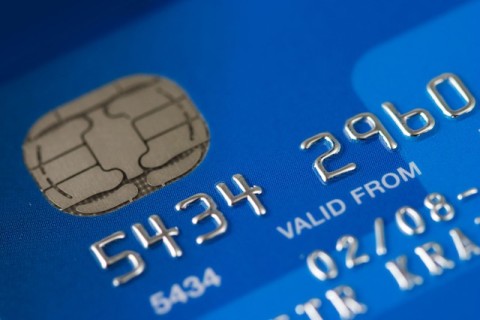
When you open your bank account you will be given a National Sort Code (NSC, but typically referred to as the sort code). This 6 digit code identifies both the bank and the branch where the account is held. If you are transferring money within the Republic of Ireland (e.g. paying your rent), you will be asked to provide your sort code alongside your bank account number. This number is also usually printed on your bank statements.
SEPA countries include all countries that are members of the EU:
Austria, Belgium, Bulgaria, Cyprus, Czech Republic, Denmark, Estonia, Finland, France, Germany, Greece, Hungary, Ireland, Italy, Latvia, Lithuania, Luxembourg, Malta, Netherlands, Poland, Portugal, Romania, Slovakia, Slovenia, Spain, Sweden, United Kingdom.
It also includes Norway, Iceland, Liechtenstein, Monaco and Switzerland.
If you want to carry out money transfers then you need an account with SEPA capabilities. This is a European Union initiative to simplify the process for bank transfers using the euro.
You will also need to use the banks Business Identifier Code (BIC). This is the address assigned to a bank in order to accurately send automated payments to the bank concerned. It uniquely identifies the name and country (and sometimes the branch) of the bank involved. BICs are often called SWIFT Codes and can be either 8 or 11 characters long. SWIFT provides a network that enables financial institutions worldwide to send and receive information about financial transactions in a secure, standardized and reliable environment.
The other number that you will need is an IBAN (International Bank Account Number), which is used internationally to uniquely identify the sort code and account number of a customer at a financial institution.
Your BIC and IBAN numbers should be given to you by the bank when you open your account. You can also find this information on your bank statement.
The Banking and Payments Federation Ireland website also provides a BIC & IBAN conversion tool which will convert any domestic sort code and account number to its equivalent BIC & IBAN.

The easiest, safest and cheapest way to carry out international money transfers to or from countries outside of the SEPA is via:
Typically the larger the amount that you transfer, the better the rate that you will get. Be sure to shop around to get the best rate and look out for companies that may have hidden fees. If you are transferring large amounts of money, then many international money exchange companies waive the fees which can save you a lot of money.
The relatively simple task of grocery shopping can become a real challenge when moving to a new country with unfamiliar shops, brands and products. This guide will provide you an overview of what supermarkets are available in Ireland and what to expect.

The range of supermarkets and their range of stock is much more limited in Ireland than you may expect to find in e.g. the UK, USA and Australia. They are generally quite small in size but in the suburban areas they have much larger superstores.
You will need to pack your own groceries, which can be frustrating if you are used to being in a country where supermarkets pack them for you! Sometimes there will be a person raising funds for a charity assisting you to pack – so you will be obliged to put some coins into their fundraising bucket.
Many supermarkets are open 24/7 or have longer opening hours like 08:00am – 10.00pm everyday. You can access individual store opening times on their websites.
Liquor is sold in supermarkets, however, off-licence sales of alcohol is only permitted between the hours of 10.30am and 10.00pm on weekdays and 12.30pm to 10.00pm on Sundays or St Patricks Day. Sales are not permitted on Good Friday or Christmas Day. This does not affect supermarket opening hours as they just block access to their alcoholic products outside of the permitted times.

German based chain, very similar to Lidl.
Products: Limited range, with a focus on staple items and a ‘no-frills’ approach to store layout. Mostly stock their own brand; however, they stock more branded products than Lidl. Their beauty product range, Lacura has a cult following. It’s famous for beating it more expensive rivals by winning the 2010 best intensive anti-ageing serum. Since then it has been a popular product for those in need of cheap but effective face creams and serums. Their Florette tampons are a real bargain as well. Read an in depth review of Aldi’s range of Lacura and Florette products.
Similar to Lidl, in addition to its standard items Aldi has weekly special offers. Some of them are more expensive products such as electronics, tools, appliances, computers, through to cheap clothing, toys, flowers and gifts. Specials have strict limits on quantities and are available for one week or until they run out. You can sign up to their email newsletters to get an early preview of the specials.
Trolleys: In order to use the trolleys, you will need to purchase a special Aldi token to insert into the trolley to unlock it from the other trolleys. If you are not a regular customer then this can be very annoying when compared with other supermarkets that only require you to use a €1 coin. However, the stores provide large and small baskets that can be used without a token.
Payment types: Cash. In Ireland they accept debit cards and also Visa/MasterCard with no additional charge.
Customer loyalty scheme: No.
Online shopping: No.
Website: aldi.ie

Small Irish based retail chain. Not all of the stores contain a supermarket, so check their website for locations.
It is not always obvious that the store contains a supermarket. Usually the supermarket department is down in the basement or the back of the store – so you usually have to walk through their clothing department to get to it.
Products: Dunnes has a reasonable selection of products to choose from. They also stock their own branded products. The stores usually contain clothing, bedding and home wares but each store can vary what they sell, so check their website first to avoid disappointment.
Trolleys: In order to use a trolley, you will need to insert a €1 coin to unlock it. The stores also provide small baskets that can be used without a token.
Payment types: Cash, debit cards and Visa/MasterCard with no additional charge.
Customer loyalty scheme: Yes, called VALUEclub.
Online shopping: Not for their grocery department.
Website: dunnesstores.com
Dutch multinational retail chain. Small convenience style supermarkets.
Products: A small selection of branded products.
Trolleys: In order to use a trolley, you will need to insert a €1 coin to unlock it. The stores also provide small baskets that can be used without a token.
Payment types: Cash, debit cards and Visa/MasterCard with no additional charge.
Customer loyalty scheme: Yes, called SuperEasy Rewards.
Online shopping: No.
Website: eurospar.ie

German based chain, very similar to Aldi.
Products: Limited range, with a focus on staple items and a ‘no-frills’ approach to store layout. They stock their own products as well as branded products. Similar to Aldi, in addition to its standard items Lidl has weekly special offers, some of them on more expensive products such as electronics, tools, appliances, computers, through to cheap clothing, toys, flowers and gifts. Specials have strict limits on quantities, and are available for one week or until they run out. You can sign up to their email newsletters to get an early preview of the specials.
Trolleys: In order to use a trolley, you will need to insert a €1 coin to unlock it. The stores also provide small baskets that can be used without a token.
Payment types: Cash, debit cards and Visa/MasterCard with no additional charge.
Customer loyalty scheme: No.
Online shopping: No.
Website: lidl.ie


UK based retail chain. Not all of the stores contain a supermarket, so be sure to check their website for locations. It is not always obvious that the store contains a supermarket. Often the supermarket part is in back of the store.
Products: Known as a luxury food store, they also sell a large range of pre-prepared food. They also sell niche items that you may not find in other stores.
Trolleys: In order to use a trolley, you will need to insert a €1 coin to unlock it. The stores also provide small baskets that can be used without a token.
Payment types: Cash, debit cards and Visa/MasterCard with no additional charge.
Customer loyalty scheme: No.
Online shopping: Yes, but you must collect it in store, they do not home deliver groceries.
Website: marksandspencer.ie

Irish based supermarket chain.
Products: Supervalu stock their own brand of products as well as branded products.
Trolleys: In order to use a trolley, you will need to insert a €1 coin to unlock it. The stores also provide small baskets that can be used without a token.
Payment types: Cash, debit cards and Visa/MasterCard with no additional charge.
Customer loyalty scheme: Yes, called Real Rewards.
Online shopping: Yes.
Website: supervalu.ie

UK based chain store.
Products: Tesco has a broader selection of products to choose from. They stock their own brand of products alongside branded products. Some of the larger stores also sell their cheap clothing range and home wares, electronics, garden items etc…
Trolleys: In order to use a trolley, you will need to insert a €1 coin to unlock it. The stores also provide small baskets that can be used without a token.
Payment types: Cash, debit cards and Visa/MasterCard with no additional charge.
Customer loyalty scheme: Yes, called Clubcard. You can collect points not only with your grocery shopping, but also at other Tesco businesses and business partners.
Online shopping: Yes.
Website: tesco.ie
If you have had to pay the high cost of getting your personal effects shipped to Ireland, then you probably got rid of a lot of things and now need some basic household essentials. But when you arrive in Ireland you’ll most likely have no idea which shops to go to for basic items such as linens, kitchenware and electricals. Furthermore you’ll have no idea which ones are the luxury shops or the budget shops. This guide will provide you an overview of the main department stores in Ireland and what to expect from them.

Shops in Ireland may open whenever they want, including Sundays and public holidays, but they are typically open:
Large shopping centres and out of town suburban centres are typically open longer hours everyday:
In the two weeks running up to Christmas, it is common for many shops to have extended opening hours. Some may operate 24 hours until midnight on Christmas Eve.
Most shops in smaller towns and villages don’t open on Sundays. Shops are usually closed on Christmas Day, though most are open on all other holidays.
Ireland shares the same bed sizing as the UK. For those of you from countries that use the bed size ‘Queen’ and ‘King’ – the Irish King size is similar (though slightly smaller) to a ‘Queen’, and the ‘Super King’ is similar (though slightly smaller) to the ‘King’.
Sheets are usually sold singularly (flat or fitted). Sheets are not commonly sold in sets (i.e. flat, fitted and pillowcases in one package).
Pillowcases are usually sold in pairs. The opening/closure of the case is usually a pocket inside the open end to enclose the pillow. In other countries the square/continental pillow is often called a “European sized pillow”.
Below is a table of the bed types and sizes that you might expect.
| Single Bed | Double Bed | King Bed | Super King Bed |
| 90cm x 190cm | 135cm x 190cm | 150cm x 200cm | 180cm x 200cm |
| 35in x 75in | 53in x 75in | 59in x 79in | 71in x 79in |

An Oxford pillowcase is one that has an extended material edging/valance trim.
A free service where you can purchase your product of choice online and then choose which store (if more than one) you wish to collect it from.
€€€€ = Expensive
€€€ = Pricey
€€ = Moderate
€ = Cheap
There are lots of second hand furniture stores and charity shops. A quick online search will find your local retailers. There are also plenty of antique stores for those of you with a bit more money and looking for something unique.
People tend to overprice their wares, so be sure to first check the recommended retail price (RRP) before making an offer. The sites available offer similar services.
Once you’ve gone through the process of getting your pets to Ireland, then the next step is understanding the day to day responsibilities of owning a pet. Like, what sort of pet insurance is available? And where can my animals stay when I’m on holiday?
Pet ownership in Ireland:
Vaccinating your pets is essential to their health. These vaccines protect them from very contagious fatal diseases.
Your vet will provide you with a record of vaccination, showing the vaccines that have been administered to your pet and the dates that the next booster is due. This is an important document so keep it safe.
Dogs are vaccinated against distemper, hepatitis, parvovirus, leptospirosis and kennel cough. Puppies should be vaccinated at 6-9 weeks of age and then again at 10-12 weeks. They will become fully protected two weeks after the second vaccination. Regular ‘booster’ vaccinations are necessary to keep the dog’s immunity levels high enough to protect him against disease throughout his life. Your vet will advise you on how often your pet needs to be vaccinated.
Cats are vaccinated against feline infectious enteritis (FIE), cat flu, leukaemia virus (FeLV), chlamydophilosis. Generally, kittens begin vaccinations at 9-10 weeks of age. They will need another vaccination at 12 weeks old. Most kitten vaccines are given as part of a series of injections to stimulate optimum immune response. Thereafter booster vaccinations at regular intervals, as recommended by your vet, are strongly advised to ensure continuing immunity.
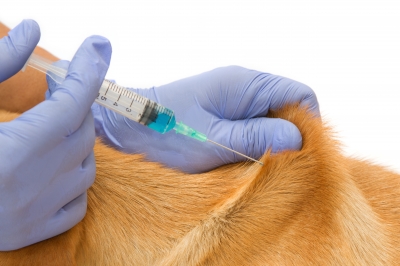
In Ireland local authorities are responsible for dog control and they have the power to seize dogs, impose fines and take court proceedings against owners.
If your dog injures people or livestock then you will be liable.
If your dog is going to be staying in Ireland for more than 30 days then it will need to be licensed. Guide dogs are exempt from being licensed.
Find out more about dog licensing in Ireland.
Your dog must wear a collar that details its name and address. If you do not comply with this regulation, you may be given an on the spot fine.
From September 2015, the government introduced compulsory microchipping. If you are planning to relocate your dog to Ireland then this is a mandatory requirement for all dogs entering Ireland. Learn more about European pet microchipping.
Alongside the regulations outlined, when in public the following breeds of dogs must be muzzled, on a two metre leash and be led and controlled by a person over 16 years of age:
Many areas in Ireland suffer from considerable dog fouling. This problem is caused by apathetic dog owners and the common Irish practice of letting dogs (illegally) roam free. Don’t be surprised to see a well placed dog turd sitting at the foot of a “No dog fouling” sign! There are spot fines that are supposed to be given out, however, it is a common issue raised in the local newspapers that this regulation is not regularly enforced.

Unfortunately there is no public health care for animals. When your beloved pet becomes ill or gets injured, you can be faced with veterinary bills that can run into the thousands of euros. Most of us don’t have this kind of money lying around. Pet insurance provides a way of budgeting your pet’s healthcare to enable you to afford the quality treatment they need and deserve.
There are a huge range of pet insurance providers to choose from in Ireland:
Before you start comparing policies, here are some helpful tips and hints to help you understand.
The amount that you pay for your insurance cover. Typically, the more expensive the premium, the more cover that you will receive. However, read the small print as you may end up unnecessarily paying for benefits that you do not need.
The amount that you pay have to pay each time you make a claim. The excess may be a fixed amount per condition, or a fixed amount plus a percentage of the fees, or just a percentage of the fees. When choosing a policy, you will typically pay a lower premium by accepting a higher policy excess.
As pets grow older, many pet insurance companies ask owners to pay a higher policy excess.
Many pet insurance companies offer third party liability cover for damage caused by your pet for which you may be legally liable.
Policy exclusions are items that will not be covered by the pet insurance policy. Common exclusions include:
This cover is the most comprehensive but typically the most expensive.
The policy is renewed annually, but any health conditions that your pet has developed during the year continue to be covered for the life of the pet.
This cover tends to be less expensive, but it is likely to pay out less over your pet’s lifetime.
This policy is renewed annually, and only covers a condition for 12 months from its onset. However, after 12 months, any condition claimed in the previous year is excluded from the insurance cover.
This type of cover usually provides insurance for one-off accidents or illnesses where your pet is treated and recovers. However if your pet develops a long term, chronic illnesses, the cover may not be enough.
As well as cover for accidents and illnesses, some insurance companies may provide the following benefits:
Many pet insurance companies have an age threshold beyond which they will not accept a new policy. But as long as your pet has been insured prior to this age threshold, most companies will continue to offer coverage.
However, when this age threshold is reached, you can expect the policy premium and excess to increase. The list of exclusions also typically gets longer, so carefully check your policy conditions when you are renewing it.
Guide dogs and assistance dogs are permitted to travel on all services free of charge without restriction. Be aware that these service dogs must be wearing their official coat, medallion and lead to identify it as a working dog.
Animals are not allowed on buses and trams (unless of course they are a service dog), however, don’t be surprised if you occasionally see this happen. I have on occasion seen small animals snuck onto trams and buses. It is usually at the driver’s discretion.
The Irish Rail (Iarnród Éireann) service is much more flexible.
If your dog is not a small lap dog, it can still be transported on the Intercity services in a Guards Van (non-passenger compartment) if it is available (not all routes have this compartment available). Charges will apply.
Dogs conveyed in a Guard’s Van must be:
Learn more about travelling with pets on the Irish Rail website.
Taxis are usually ok about transporting pets as long as they are in a container or you have them restrained and ensure that they sit on a blanket. However, it is at the driver’s discretion as to whether they will take you.
There are a number of accommodation providers in Ireland that allow pets. Some of them may charge an additional fee to accommodate them. But there are also many that don’t allow pets, so make sure that you book well in advance and make it clear how many pets you will be bringing, their breed and size so there is no misunderstanding when you turn up.
Can’t take your pet with you while on holiday? There are lots of quality catteries and boarding kennels in Ireland.
Find a boarding service near you:
Making new friends as an adult can be tough, and finding friends when you’ve relocated to a new place can be a daunting task. Making friends in your new workplace may be difficult. There is likely to be a much more diverse spread of ages in an office and they may already have their families and a wide social circle behind them.
Other than work, the best way to find new friends is to join a group of like minded individuals. However, the key is not just to attend the social events, but to then invite two or three people from it out for coffee or for a few drinks. Likewise, don’t be afraid to accept invitations, no matter how daunting it seems.
Don’t forget to ask for people contact details and made use of social media and group messaging to help you to keep in touch with people. When you are establishing new friendships, you need to take the time and effort to maintain connections. You will soon realize that these people are your new friends.
Joining a local sports team is a great way to meet new people and create new friendships (as well as keeping fit of course). With people from all over the world living in Ireland, you can find a club for just about any kind of sport. Or you could consider trying your hand at traditional Irish sports like Gaelic football, hurling handball or rounders.
Find a sporting club near you:
Whether it’s Yoga, Pilates, Boxing or Aerobics, joining a regular class will provide you with the opportunity to meet new people, and hopefully develop friendships. Start by asking people out for a coffee after a class.
Spend some time on these websites to find a group or individuals with similar interests to meet up with.
The Meetup website provides lists of group meet-ups in cities across Ireland. Meetup aims to bring people with common interests together and to promote the development of local communities. Whatever your hobby or interest, there is sure to be a Meetup group for you. where you can find other like minded people.
is a site for people looking to meet new people and make new friends in their area. On the website you will find listings by all kinds of individuals that are wanting to meet new people and develop friendships.
Enrolling in a night course allows you to not only gain new skills, but also to meet new people and provide you opportunities to make new friends. Find a course that interests you at NightCourses.com.
Volunteering is a great way to not only meet other people, but also to become involved in and get to know your new community. Volunteer Ireland posts volunteer opportunities from all over Ireland and also provides details about how to get the volunteer position that your after.

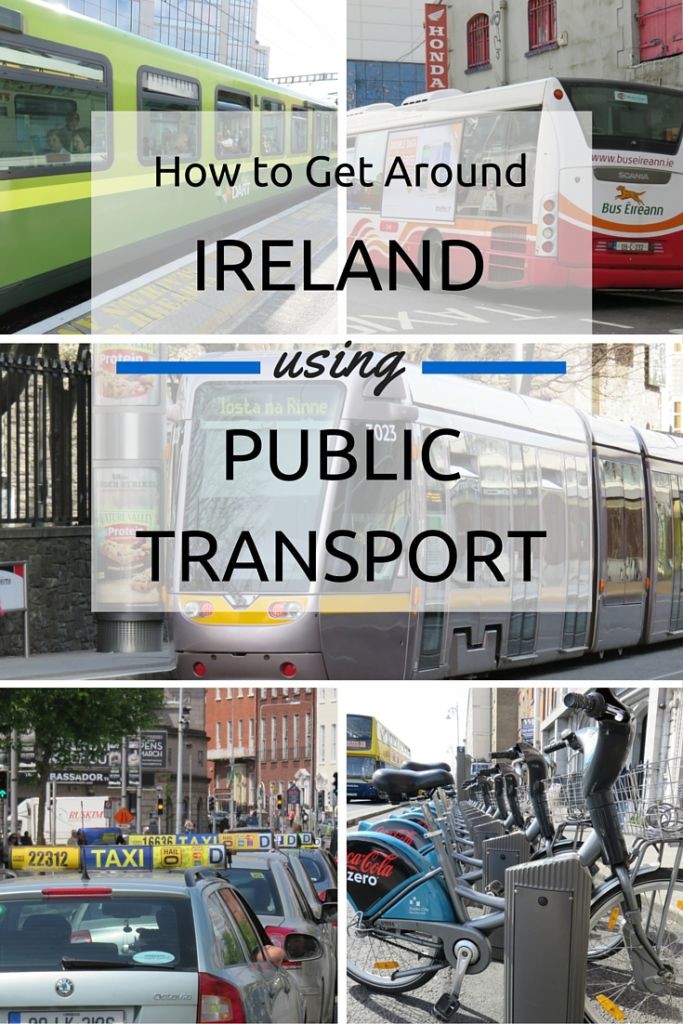
The National Transport Authorities website Transport for Ireland is an essential resource for planning your trip anywhere around Ireland. The planner provides timetable and map information from all licensed public transport providers across all of Ireland. It provides plans for trains, buses, trams, ferry, and taxi services and combines them into easy to read journey plans. It provides door-to-door route plans and has information about scheduled departures and trips near your current location and from any specified point. Your plans also can be for now or any time in the futures.
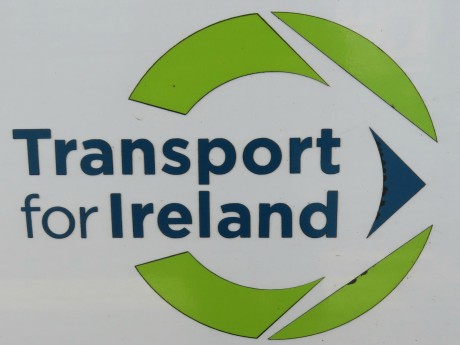
You can also download the free Journey Planner app from the Apple App Store, Google Play Store or Windows Store.
The leap card is a pay as you go smart card used on public transport on the:
It is much cheaper to use the Leap Card than purchasing paper tickets for each trip.
There are 3 kinds of Leap Cards:
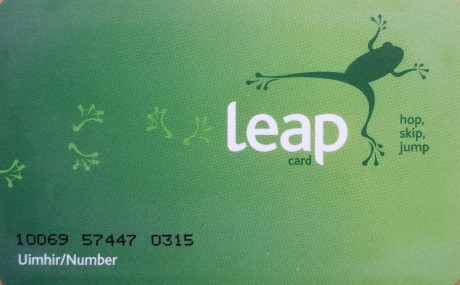
As well as the public bus services, there are also a large number of licensed private bus services operating both city and intercity services throughout the island of Ireland.
Some of the bigger operators are listed below though the list is not exhaustive:
Iarnród Éireann – Irish Rail, provides train links between Irelands main cities and towns. To book a rail journey and to find out more go to the Irish Rail website.
Visitors to Ireland can get unlimited travel on the national rail network of the Republic of Ireland and Northern Ireland. You can choose from 3, 4, 5 or 8 days of unlimited travel within a 1 month period and travel days may be used consecutively or nonconsecutively. Only non-European residents can travel with a Eurail pass. If you’re a European resident you can travel with an Interrail pass.
Before purchasing this pass, just make sure that you are going to get your money’s worth by checking the fares to all the places that you plan to visit. Also, be aware that many of the Irish rural areas can only be accessed by bus. To purchase the Eurail Ireland Pass and to learn more, visit Eurail.
You can also download the free Iarnrod Eireann Irish Rail app from the Apple App Store or Google Play Store. The planner provides real time train information including delays and remaining time to departure.

If you are aged 66 years or over and receive a social welfare pension, you are eligible for free travel on public transport. You need not apply as you should be issued the Free Travel Pass automatically.
Those under 66 years of age and receiving an Invalidity Pension, a Blind Pension, Disability Allowance or Carer’s Allowance will also be issued with the pass.
There are also other categories in which you may be eligible to apply for and receive the Free Travel Pass. Learn more about Ireland’s Free Travel Scheme.
Dublin is Ireland’s main airport, but their other airports also provide a number of flights to a range of destinations throughout the EU and EEA.
As Ireland is quite small, it is usually cheaper and easier to travel internally using the bus and rail services which provide regular, affordable services throughout Ireland and Northern Ireland.
The National Transport Authority is responsible for the licensing and regulation of small service vehicles in Ireland which includes taxis, hackneys, and limousines. Ireland’s vehicle hire services provide wheelchair accessible taxis and hackneys. You may hear the term ‘hackney’ being used. This refers to a private hire vehicle. They fall under the same licensing and regulation laws, but the cabs are pre-booked. They do not have taxi meters so the fare must be pre-agreed between the driver and passenger before the journey begins. Be aware that they cannot be hailed down in a public place. To give you an idea of what your fare will cost and to help you avoid being ripped off, the Transport of Ireland have a Taxi Fare Estimator tool. There are several ways that the National Transport Authority assists you to verify that the vehicle you are about to hire has been correctly registered and the driver has the appropriate licensing to operate the vehicle. There are two ways to verify: This service provides verification for Ireland’s licensed taxis, hackneys, limousines and Public Service Vehicles and covers rural locations as well as cities such as Dublin, Cork, Galway, Limerick, and Waterford. Users can search by the car registration number, the vehicle taxi licence number, the driver licence number or by scanning the appropriate QR codes. There is also the facility to email a friend the trip details. The National Transport Authority provides an easy to read guide that gives passengers the necessary information that they need when hiring a service vehicle. These information cards explain what to expect and what to look out for. Taxi’s typically carry these information cards and you can usually find them in the pocket behind the drivers seat. Both websites are very easy to navigate and provide all the information you need. Be sure to access Ireland’s Cycle Planner to help you get around Cycling is becoming an increasingly popular way to get around in Ireland. The Irish cities Dublin, Cork, Limerick and Galway provide public bike schemes. The schemes are continually improving and expanding. Even if you do plan to purchase a vehicle, it’s worth considering signing up for the city bikes because they make it so much easier (and cheaper) to get around. Cycling enables you to avoid the stress of finding and paying for a car park and dealing with frustratingly slow traffic. The bikes even come with a bike lock, enabling you to pull up and leave your bike to explore on foot. The City bikes are available for short term use, which makes them perfect for using while on holiday or if you want to try them out before subscribing to the scheme. The scheme offers a pay as you go service, with the first 30 minutes free, or you can get a cheap 3-day pass. Not all of the terminals in the Dublin scheme have a credit card facility for short term use payments, so be sure to check the Dublin bikes website that provides a detailed list of the ones that do. Public transport can be rather expensive, but purchasing the annual pass and making use of the city bikes will save you lots of money to spend on more exciting things. You also don’t have the cost of buying or maintaining the bike, the annoyance of having to store it or the risk of it being stolen. You will also be improving your health by getting some exercise (which will help offset all those pints of beer you’ve been drinking). To subscribe to an annual pass, you need to register online. Avoid the disappointment of turning up at a bike stand and finding it empty. Download the free app that enables you to find station locations, check bike and stand availability, plan your route and access your account information and activity. Dublin: To access the free city bike scheme app for Dublin, download the AllBikesNow app from the Apple App Store or the Google Play Store. Cork, Limerick and Galway: To access the free city bike scheme app for Cork, Limerick and Galway, download the bikeshare.ie app from the Apple App Store or the Google Play Store. The Transport of Ireland website also offers a Cycle Planner. Based on your individual cycling capabilities, the Cycle Planner provides information on the best cycling routes in Dublin, Cork, Galway, Limerick and Waterford. You can use the Cycle Planner online or download the free Cycle Planner app from the Apple App Store or the Google Play Store. The app provides loads of great features. If you are new to cycling or lack confidence, the Cycle Planner will find a route that avoids roads with heavy traffic and difficult turns at busy junctions to help you gain confidence cycling around town. For the more advanced cyclists, the Cycle Planner will provide the most direct routes to take whilst still recommending cycle tracks where they exist. There is also a feature called ‘Turn Difficulty Factor’ that helps you to choose junctions and turns that suit your cycling capability. To save on data roaming, you can even save your routes and use them offline. Driving in another country can be stressful, especially if it means driving on the other side of the road and being confronted with new driving challenges such as the dreaded roundabout. But don’t despair, with a little bit of preparation you too can gain the necessary knowledge that you need to tackle those Irish roads with confidence. If you are involved in an accident, you must stop at the scene, no matter how extensive the damage is. Take the details of the other driver: If anyone is injured in the accident and/or there is property damage, you should report it to the Garda (police). If you can, you should also take photographs of the scene of the accident and all damaged property (try to include the entire vehicle in case damage occurs after the accident and they attempt to attribute it to the accident). This can be submitted to the insurance company and Garda if necessary. For further information about the Irish road rules and regulations, visit Ireland’s Road Safety Authority website. Their website allows you to view, download and listen to the Irish road rules. There are eleven toll roads in the Republic of Ireland: Everyone who drives through these toll roads is expected to pay, regardless of whether you are just visiting Ireland. All of the toll roads, except the M50, have conventional barriers where you can pay cash as you drive through. The M50 operates a barrier free tolling system. If you intend to travel on the M50 in a rental car, you should contact your car rental company in advance to find out if your rental agreement covers the payment of toll charges. Some companies will include toll charges in your bill; others will require that you pay all toll charges yourself. If you are required to pay toll charges, you can pay for your M50 journey using any of the following methods: If you live in Ireland and plan to regularly travel through the tolls, then you can set up an account with eFlow and get an electronic tag for your vehicle. This will also give you a cheaper rate for the M50 toll. If you are only an occasional user of the M50, you can sign up for a Video Account. As you pass through the M50 barrier free tolling system, the cameras will read your registration plate and charge you accordingly. You will also receive a discount on your toll. Ireland has a penalty points system for driving offences. Find out more about the penalty points, fixed charges, and bans on Ireland’s Road Safety website. Don’t risk being stuck with a broken down vehicle in the middle of the Irish countryside. Get peace of mind by signing up for breakdown cover. If you are hiring a car, this service should be provided by the car hire company. If you have comprehensive insurance, then breakdown service may be provided as part of your cover. However, the service that they provide may be limited, so check before joining any breakdown service. The main Irish providers of breakdown services are: Listen out for traffic reports using: When renting a vehicle most companies will accept a driver’s licence from the country that you reside in. If you have an EU/EEA driver’s licence you may continue to drive in Ireland on your current licence. You can exchange it for an Irish drivers licence when it expires. Those with a licence from a country outside of the EU/EEA may drive on their driver’s licence in Ireland for 12 months. However, after the 12 month period you need to apply to have your driver’s licence changed to an Irish one. To be eligible to exchange your driver’s licence to an Irish one you must: If you do not have a driver’s licence from one of these listed countries, you will need to apply for an Irish drivers licence by completing the full Irish driver licensing procedure. To exchange your driving licence for an Irish one, you need to make an appointment at the NDLS, which you can do online. If you go into the NDLS centre without an appointment, then expect to wait a while. If your driver’s licence is not from a country listed above, you may drive on your licence for 12 months. But after this period, you must apply for an Irish driving licence by completing the full Irish driver licensing procedure. There are five steps that you must complete in order to achieve your full Irish drivers licence: Cork Airport Donegal Airport Dublin Airport Ireland West Airport Knock Kerry Airport Shannon Airport
Irelands Taxi Services

What Are Hackneys?
Get an Estimate of Your Fare
Check If Your Driver Is Properly Licensed
Customer Information Cards
Irelands City Bikes
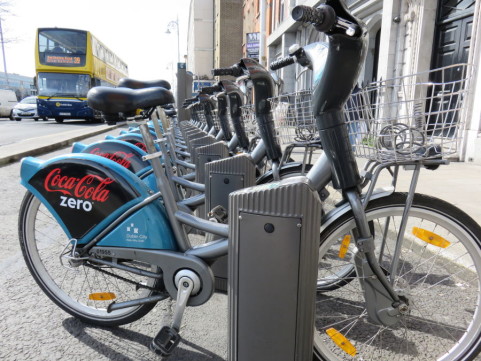
Irelands City Bike Scheme
Short Term Use
Annual Pass
Free City Bike Scheme App
Irelands Cycle Planner
Irelands Free Cycle Planner App
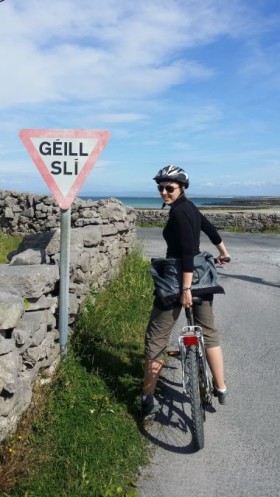
Cycle Planner App Features
Driving Around Ireland
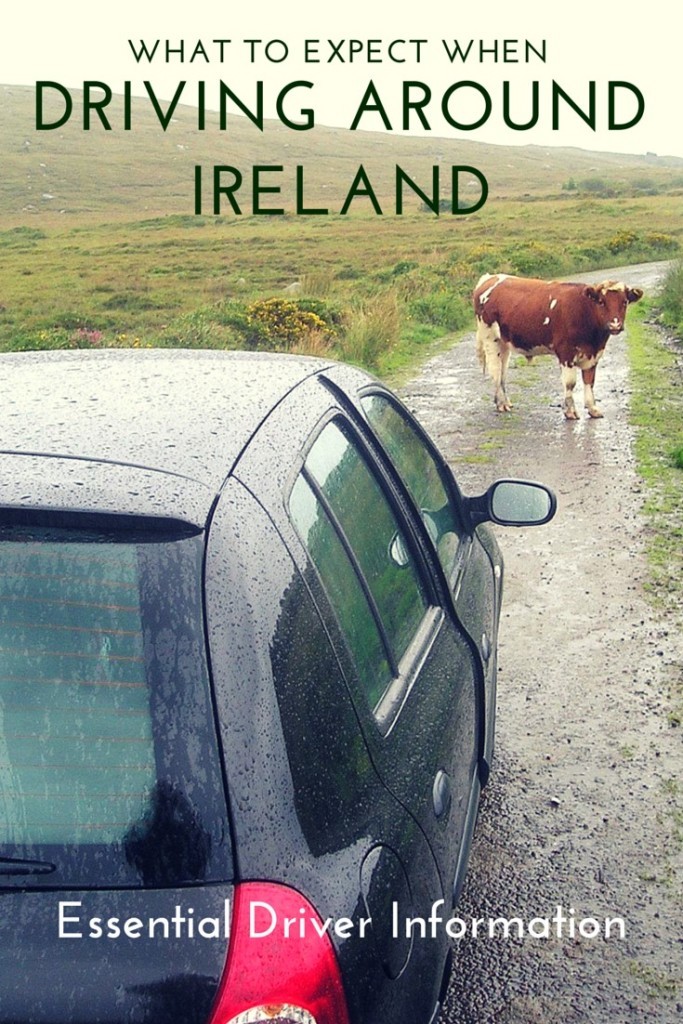
Essential information for driving in Ireland:
Irish Road Rules
How to Drive on a Roundabout in Ireland
Irish Safety Regulations
What to Do in an Accident
Tips
What to Expect When Driving Around Ireland
Tips
Toll Roads in Ireland
Irish Driving Offences Penalty Points System
Irish Vehicle Breakdown Services
Irish Traffic Reports
RelocatingtoIreland.com is a participant in the Amazon EU and Amazon Services LLC Associates and Programme, an affiliate advertising program designed to provide a means for sites to earn advertising fees by advertising and linking to Amazon.co.uk and amazon.com. Regardless, I only recommend products or services that I personally believe will add value to my readers.
Driver Licensing in Ireland
Renting a Vehicle
EU/EEA Drivers Licences
Non EU/EEA Drivers Licences
How to Exchange Your Foreign Driving Licence for an Irish Driving Licence
Are You Eligible to Exchange Your Foreign Driving Licence for an Irish Driving Licence?
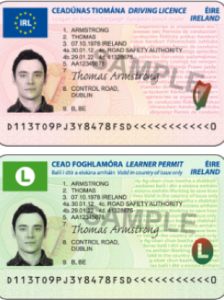
How to Apply for an Irish Driving Licence
In order to apply for an Irish driving licence, you must:

Car ownership in Ireland is expensive. There are numerous taxes that must be paid and the cost of petrol is very high. In addition, if you live in a busy city area like Dublin, then parking is limited and expensive. Before purchasing a car, consider whether you really need one. You may be financially better off using public transport, taxi’s, city bikes, and the occasional car hire for those times when you want to leave the city (however, there are also very good intercity public transport options).
You are liable to pay the standard Value Added Tax (VAT) when you purchase a vehicle in Ireland.
You may also be liable to pay VAT for new vehicles that you import into Ireland, even if you paid VAT in the country that you purchased it from. However, if you can provide evidence that the car has been used for at least six months and the vehicle has travelled over 6,000 kilometres when you register it, then you may be able to avoid paying VAT. You can’t avoid paying the VAT, because when you register the vehicle
Learn more about Irelands VAT rates.
Vehicle Registration (VRT) must be paid on all new vehicles purchased in Ireland as well as on vehicles that you import into Ireland.
If you purchase the vehicle from a motor dealer in Ireland, then the dealer is obliged to pay the VRT and register the vehicle before handing it over to you.
If you import a vehicle into Ireland, you will be responsible for registering the vehicle and having it assessed for VRT within seven days of it arriving in Ireland. To do this you will need to take the vehicle to a National Car Testing Service (NCTS) centre. At the NCTS they will establish how much VRT you will be required to pay. You can get an estimate of this amount payable from the Revenue Vehicle Registration Online Enquiry System.
The registration process must be completed within 30 days of the vehicle arriving in Ireland. Once it has been registered and the VRT paid, you will receive the vehicle registration certificate. This also provides evidence that you have paid the VRT.
Learn more about the VRT on the Revenue Irish Tax and Customs website.
The Irish Government imposes motor tax on all vehicles. Once your car has been registered, you will receive the Form RF100 Motor Tax Application which you will need to complete in order to pay the required motor tax. The motor tax on vehicles registered before July 2008 is determined by the CO2 emissions. For vehicles registered after July 2008 the amount of motor tax that you will need to pay is dependent on the size of your vehicles engine.
You can pay your motor tax three, six, or 12 monthly, either online or at a Motor Tax Office. You will receive a motor tax disk to display on the windscreen of your vehicle. Renewal reminders will be sent to you.
Learn more about the motor tax on the Motor Tax Online website.
The National Car Test (NCT) is required for all vehicles 4 years or older, regardless if the vehicle has undergone similar testing in other countries. The NCT assesses your vehicle for road worthiness e.g. brakes, rust, steering, emissions etc… The NCT needs to be carried out every two years, but for vehicles older than 10 years it will need to be carried out annually. If you do not get your vehicle tested as scheduled, you will face fines and penalty points.
Learn more about the NCT and to find your local testing centre.
You are legally required to have motor vehicle insurance when driving in Ireland. If you fail to do so, you may incur fines and penalty points and could be disqualified from driving.
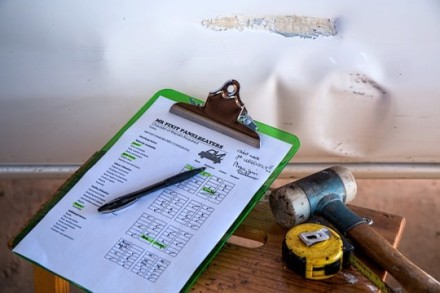
Car insurance premiums are determined by your:
This is the highest level of cover, but consequently the most expensive. It typically covers you for all eventualities.
This is mid-range insurance. It typically covers you for loss of your vehicle through fire or theft and damage to property. There are other optional extras that you can take out such as windscreen breakage.
This is the most basic form of insurance and is the minimum cover that you must have by law. If you are at fault then only your passengers and the driver and passengers of the other vehicle/s are compensated. This type of insurance does not provide cover for your vehicle damage or if it is stolen or goes on fire.
If you are involved in an accident, you must stop at the scene, no matter how extensive the damage is. Take the details of the other driver:
If anyone is injured in the accident and/or there is property damage, you should report it to the Garda (police).
If you can, you should also take photographs of the scene of the accident and all damaged property (try to include the entire vehicle in case damage occurs after the accident and they attempt to attribute it to the accident). This can be submitted to the insurance company and Garda if necessary.
Don’t risk being stuck with a broken down vehicle in the middle of the Irish countryside. Get peace of mind by signing up for breakdown cover. If you are hiring a car, this service should be provided by the car hire company.
If you have comprehensive insurance, then breakdown service may be provided as part of your cover. However, the service that they provide may be limited, so check before joining any breakdown service.
The main Irish providers of breakdown services are:
Importing a car into Ireland can be very costly. Before doing so, make sure that you consider the costs.
If you are importing a car into Ireland, you must: